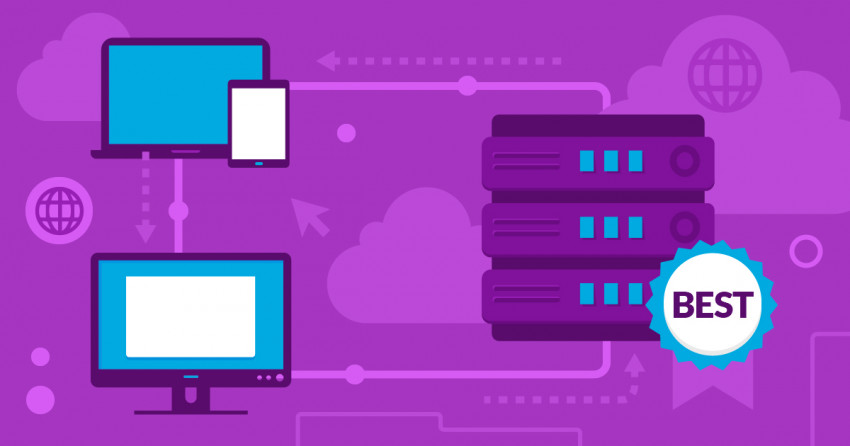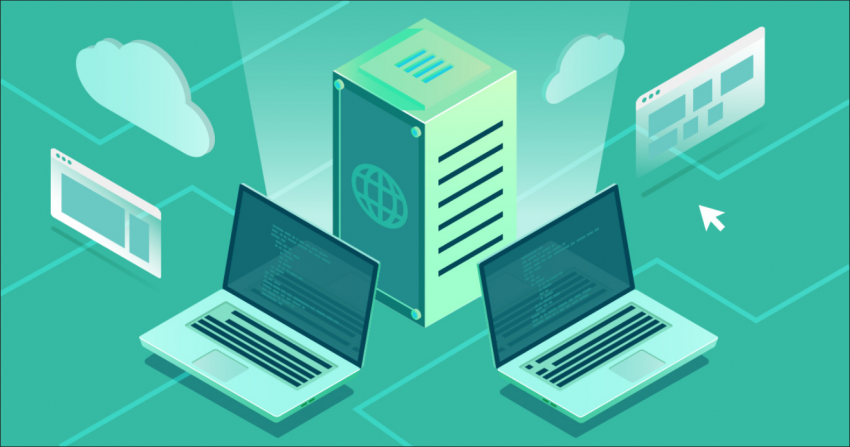Inside this Article
What is Dedicated Hosting?
As you may have inferred from the name, dedicated server hosting means having an entire server to yourself. Let’s use an analogy, shall we? Dedicated hosting is like having your own property. You don’t have to share your house with obnoxious flatmates and you can pretty much do whatever you want. A lack of housemates also means your home is safer, more customizable, and has better performance (in terms of your lifestyle, if you will). You can choose to have a garden or do without, renovate any part of the house, install security cameras, or even put up fences if you like. Of course, you’ll pay a lot more because you’ve got no one to split the rent with.What is Shared Hosting?
Again, the name accurately describes the server. Shared hosting means splitting a single physical machine between several websites. In short, you’ll have to share your precious living space with flatmates, but you’ll pay a whole lot less at the end of the month.What Are the Pros and Cons of Each?
A private home is clearly better than a shared house, right? Perhaps, but that doesn’t mean you need it. Let’s check out the key advantages and disadvantages of each to help you decide.Costs
Price is the main consideration when deciding between the two. Why so? Because the cost difference is immense. For example, a dedicated server plan could be priced at US$79 while a midrange shared hosting plan would cost just US$3.49. You can check out dedicated servers from Bluehost and shared hosting plans from Hostinger as a good comparison. Yep, that’s a 20-fold variation. And no, there isn’t a notable difference between these two company’s rates.Resource Scalability
Shared hosting typically provides a maximum allocated amount of resources such as bandwidth, processing power, hard disk space, and RAM. (Side note: Whenever a shared hosting vendor advertises unlimited storage and bandwidth, make sure you check the fine print — nothing is ever really unlimited.) If a customer needs to substantially increase their resources, they’ll have to migrate their entire website to another platform. These days, however, some providers such as 1&1 do allow a limited level of scalability on their shared hosting services. On the other hand, dedicated servers are only limited to the resources inside the machine. If a user needs more, they can attach extra RAM or request additional bandwidth on a whim.Performance
Going back to our analogy, a shared house tenant may find their housemate hogging the internet bandwidth by streaming movies all day. Consequently, their internet speeds will suffer tremendously. Given that dedicated servers have their own exclusive resources, they’re never affected by the actions of others, which makes them considerably faster and more reliable.Technical Expertise
In a shared house, the landlord will take care of intermittent issues such as a leaky roof. Homeowners, on the other hand, have to fix this stuff themselves. The same concept applies to our two server types. Shared hosting maintenance is the responsibility of the provider, who monitors and fixes issues as they arise. Dedicated servers, on the other hand, require technical expertise from their users, who take care of everything themselves. There is an exception, however. With managed dedicated servers, the provider undertakes the maintenance on the client’s behalf. Of course, the user pays more, but the final cost typically works out to be much cheaper than hiring server maintenance personnel. For an example of managed dedicated server plans, check out SiteGround’s offerings.Security
Shared hosting providers include firewalls and other security applications to safeguard their infrastructure. However, the poor security practices of shared users could result in the spread of malware and viruses, much like being robbed by a dodgy housemate. Dedicated servers, on the other hand, provide the best security on the market. Better yet, they can be customized any way you like.IP Blacklists
From time to time, Google blacklists the IP addresses of websites involved in illegal activity. And with shared hosting, you’ll be using the same IP address as countless other websites, some of whom could be shady operators. Imagine sharing a flat with a drug dealer. Even if you’re not engaged in any wrongdoing, people might still consider you guilty by association. Dedicated servers have a unique IP address so you’ll have nothing to worry about.Control
Having your own place means you can decorate it any way you want, whether it be painting the walls or re-arranging the furniture. The same applies to dedicated hosting, where the user can select their preferred operating system and software as well as tweak the settings as they please. Shared hosting is more restricted. Although providers do their best to accommodate clients, customization options are limited at best.Which one is better for me?
You’ve probably gathered by now that dedicated hosting is the superior service. But that doesn’t mean you need it.Should I Get a Shared Hosting Plan?
Ask yourself the following:- Do I expect to receive a lot of traffic?
- Can I afford to spend a sizable sum on hosting each month?
- Is my website likely to expand rapidly?
- Do I need the most advanced security measures right now?
- Do I know how to maintain a server?
Should I Get a Dedicated Hosting Plan?
Once again, ponder the following:- Do I need impeccable security to process sensitive transactions?
- Will I want to customize my server settings?
- Is my business likely to expand in the near future?
- Do I expect a lot of traffic?
- Will I need to host multiple websites?
- Will I use performance-heavy media on my website(s)?
- Can I afford to pay a lot more each month?











![Hostinger vs Nexcess – Hard to Choose, but I Did [2024]](https://dt2sdf0db8zob.cloudfront.net/wp-content/uploads/2021/04/WH-General2-and-vs-comp-1-850x446.jpg)
![When to Upgrade to VPS Hosting: All You Need to Know [2024]](https://dt2sdf0db8zob.cloudfront.net/wp-content/uploads/2022/12/WH-General2-850x447.png)
![Nexcess vs Bluehost – Which One Is Actually Better? [2024]](https://dt2sdf0db8zob.cloudfront.net/wp-content/uploads/2020/06/arvixe-vs-bluehost-850x435.jpg)
![Nexcess vs Bluehost – Which One Is Actually Better? [2024]](https://dt2sdf0db8zob.cloudfront.net/wp-content/uploads/2020/08/ryan-2.jpg)




